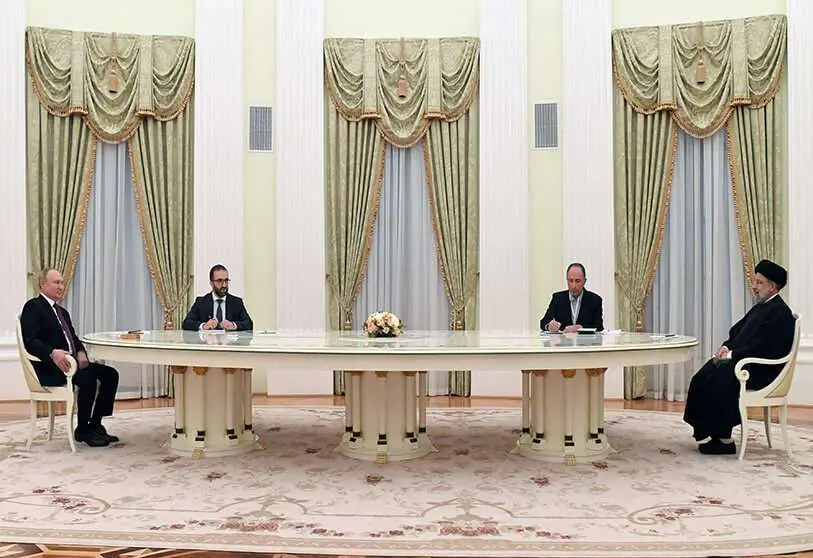The impact of Ukrainian resistance on nuclear negotiations (white card)

Changing geopolitics and changing times
In the two months since the war, it has become clear that the Russian military has fallen several places from its position as the world's second military power. The sinking of the flagship Moskova, sunk by Ukrainian resistance, is the best symbol of Russia's decline in the balance of power. Consequently, its allies, such as Iran, will not be spared this rapid decline.
Russia is, as far as possible, making a show of force with its rocket-propelled grenades and its massacres of children and women, such as the Boucha massacre. But this will not change the fact that it is in an inferior position in the international and geopolitical balance of power. And because of this degradation, the Iranian theocracy can no longer force the West to make concessions with its drone attacks on oil tankers, the Emirati airport, etc.
The Iranian regime was the first country whose president, Ebrahim Raisi, called Putin to express his support for Russian aggression. Tehran hoped that Russia would achieve its goals in the first few days, which was thwarted by Ukrainian resistance. One of the events where Ukrainian resistance had a strong impact was on Iran's nuclear talks with the G5+1.
The table around which the parties to the nuclear deal sit has been gathering dust for 40 days. There is reportedly a dispute over the removal of the Revolutionary Guard Corps from the US State Department's FTO list of terrorist organisations.
The Revolutionary Guard Corps carries out the Iranian regime's bellicose policy and is the instrument that enables its influence in the region. The US public, including Congress, as well as Iraq war veterans who have confronted this force, strongly oppose its removal from the list.
When President Zelensky said that he did not want to leave Ukraine but wanted to obtain weapons and that it was an honour to die on Ukrainian soil, he dealt a fatal blow to the policy of appeasement. This policy has so far led to unaccountable crimes being committed in some countries under the cover of national sovereignty.
So far, it has held Western countries to ransom for the blackmail and terrorism of the Iranian regime. A regime that executed more than 30,000 political prisoners in the summer of 1988 under the shadow of this policy, and placed in power the perpetrators of this massacre, such as Ebrahim Raisi, who now holds the presidency. Under the umbrella of this policy, Iran has broken the record for per capita executions, especially of women and minors.
The Iranian regime seeks to remove the Pasdaran from the terrorist list through blackmail and missile or drone attacks. But the policy of appeasement has weakened.
So far, Tehran has tried to ensure its survival by repressing at home, striving to produce an atomic bomb and agitating its bellicose policy abroad. Ali Khamenei, the Supreme Leader, has publicly declared that, if "we do not fight in Syria, Iraq and Lebanon, we will have to fight in Tehran". Now is the time for this regime to fight on the streets of its country.
In the face of this interventionist policy, the Iranian population is multiplying the uprisings aiming at the overthrow of this dictatorship, while resistance units, led by their sworn enemies, the People's Mujahedin (PMOI), are spreading all over Iran challenging the dictatorship in every city and street. The unification of the resistance units will lead to the formation of an army of freedom against tyranny. Let us welcome resistance, democracy and freedom, and a bright future in Ukraine and Iran.

